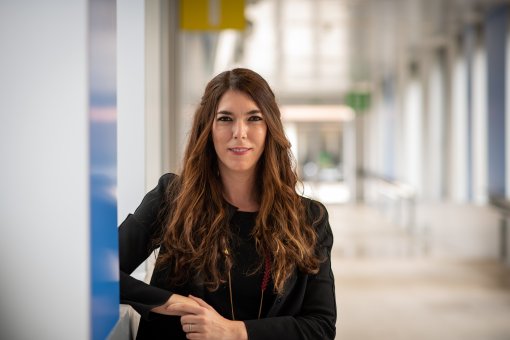Images
Contact

Xavier Salvatella has been awarded a project by the Fundació La Marató de TV3 funded with 397,000 € to study Kennedy’s disease, a neurodegenerative condition.
The project is coordinated with the Institute of Biomedicine of the University of Barcelona (IBUB) and the University of Cambridge.
In its call on Rare Diseases, the Fundació La Marató de TV3 has awarded a research project to Xavier Salvatella, head of the Molecular Biophysics Group at the Institute for Research in Biomedicine (IRB Barcelona). Salvatella will coordinate the three-year project entitled “Identification of the androgen receptor aggregates that cause spinal and bulbar muscular atrophy” (or Kennedy’s disease), funded with 396,632 €. The research groups headed by Eva Estébanez-Perpiñá at IBUB and by Leila Luheshi at the University of Cambridge will also participate in this project. Yesterday afternoon, the Fundació presented the 6 million euros raised in the La Marató 2009 to the 20 biomedical project finalists in an act held in the auditorium of the Barcelona Biomedical Research Park. Of the 20 projects awarded, 7 are individual and 13 coordinated between two or more research centres, which implies work between a network of Catalan research centres and other national and international centres, as explained by the Fundació.
Kennedy’s disease
Spinal and bulbar muscular atrophy is a rare neurodegenerative hereditary disease that affects only men and for which no treatment is available. This pathology, which was described in 1968 by the neurologist W. R. Kennedy, causes the accumulation of aggregates formed by the protein androgen receptor in motor neurons. Although the genetic origin and clinical traits of the disease are well described, little is known about the nature of these aggregates, which cause motor neuron death. This project aims to cover this gap and to provide the biomedical community with data on the structure of the aggregates, a crucial element for drug development.
According to the Fundació, last February’s call for funding for rare diseases received applications from 287 projects. A total of 134 international experts have studied and evaluated the proposals on the basis of quality, methodology and relevance in a peer review process. The evaluation process was organised by the Catalan Agency for Health Information, Assessment and Quality, which belongs to the Health Department of the Generalitat de Catalunya.
About IRB Barcelona
The Institute for Research in Biomedicine (IRB Barcelona) pursues a society free of disease. To this end, it conducts multidisciplinary research of excellence to cure cancer and other diseases linked to ageing. It establishes technology transfer agreements with the pharmaceutical industry and major hospitals to bring research results closer to society, and organises a range of science outreach activities to engage the public in an open dialogue. IRB Barcelona is an international centre that hosts 400 researchers and more than 30 nationalities. Recognised as a Severo Ochoa Centre of Excellence since 2011, IRB Barcelona is a CERCA centre and member of the Barcelona Institute of Science and Technology (BIST).





